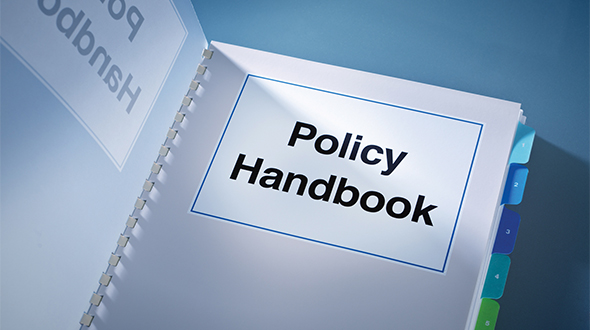Reviewing your propane operation’s employee policy handbook
It’s that time of year when we are gearing up for the busy season and holding high expectations to exceed last year’s goals.
It’s also the time of year when we might not hold regular safety meetings, but need to be certain we aren’t cutting corners. Further, you – the manager/business owner – need to reinforce and communicate the importance of our industry’s nonnegotiable safety standards and company guidelines. Busy season is the time more than ever to connect with your people.

The end of the year is a good time to review company policies. Photo: iStock.com/YinYang
When is the last time you reviewed your company’s workplace rules and guidelines? At my company, we hold a monthly safety meeting and everyone is required to attend. Our agenda includes office matters, customer issues, route efficiencies, a safety roundtable and whatever else comes up. The meeting is a great venue to communicate any changes in policy or procedure.
When is the last time you reviewed your company policies and procedures? Recently, I have had several clients request an employee handbook review. This is in direct correlation with everything happening with the “#MeToo” movement. At a minimum, I recommend a policy review for dealing with harassment, discrimination and retaliation. It should include the following:
- A definition of harassment
- A definition of sexual harassment
- A definition of discrimination
- Other forms of harassment (verbal, written, physical, just to name a few)
- Reporting and investigating process and whether to include the person that any alleged harassment claims should be communicated to
- Confidentiality policy
- Retaliation policy
- Vendor/customer complaints
- Complaint procedures
You may be thinking whether your business should even have a handbook. That would depend on the size of your business. If you only have a handful of employees, the time it might take to assemble a handbook probably won’t be worth it. However, I strongly recommend that you have a written document to communicate your general work policies to employees. A one-page document could be enough. If you’re an employer with 10 or more people on your payroll, you should strongly consider the investment. It could pay off in the long run.
For those of you who have already invested in an employee handbook, pull it off the shelf, dust it off and look through it. It may be time for a review and update. Remember that your handbook is a workplace guide, not an employment contract.
One last thing to consider: Be sure your drug policies are fine-tuned with the marijuana laws.
Ask Cathy Wallace of San Isabel Services Propane in Pueblo West, Colorado, about employee-related issues.
















